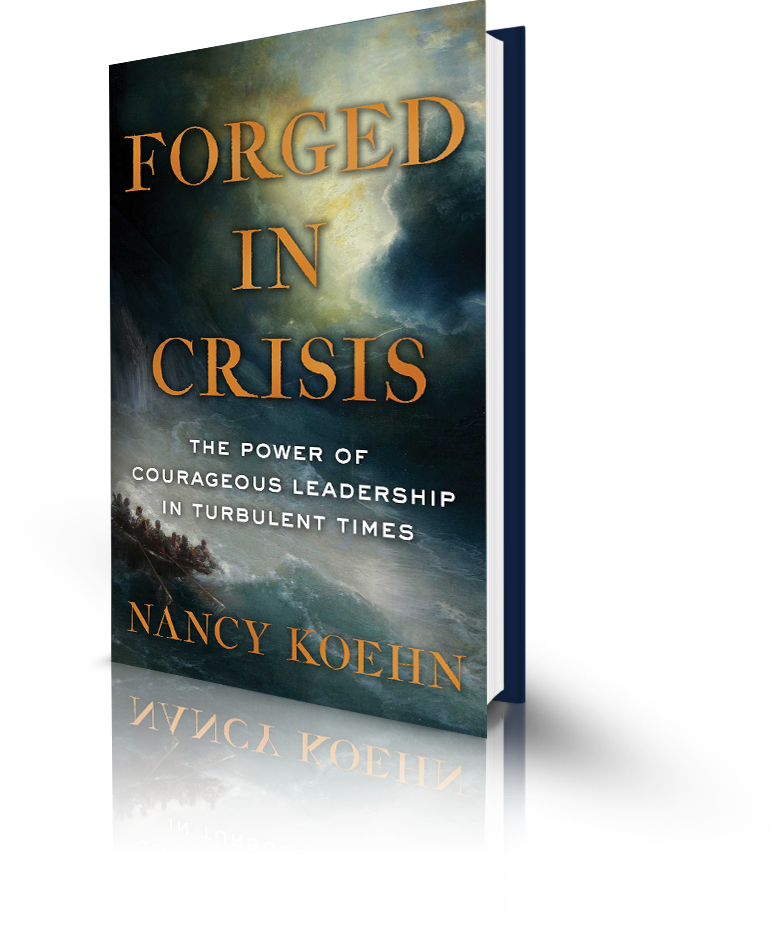The AFFIRM – DorobekINSIDER Book Club – Forged in Crisis
How many times have we heard that we are living through unprecedented times? If you are like me, COVID-19 has put unique and extraordinary challenges on government — and on government workers. Wouldn’t it be amazing if we could tap Abraham Lincoln’s leadership lessons from the Civil War? Legendary abolitionist Frederick Douglass escaped from slavery to become a national leader of the abolitionist movement. How did he come to be a transformational leader?
The AFFIRM Book Club offers a unique opportunity to tap leadership lessons from people who faced unprecedented challenges. The concept of the AFFIRM-DorobekINSIDER Book Club is similar to the Oprah Book Club — but I try to find books that are more… wonky… they are books that focus on the six words that guide me — helping government do its job better.
The book we will be discussing is Forged in Crisis: The Power of Courageous Leadership in Turbulent Times by Nancy Koehn, a professor at the Harvard Business School. The book profiles five significant but disparate figures in history — and looks at the leadership lessons we can pull from each of their against-all-odds journeys. And we will learn that leaders are not born — they are made.
I think the book is really a timely read for this moment in time. My hope is that you find the book empowering, as I did, particularly during these days when we can feel as if we are being pulled apart by sheering winds.
HOW THIS WORKS
Think of the AFFIRM book club like a wonky version of Oprah’s book club, where we focus on books that meet my simple, six-word criteria: Help government do its job better. So… it’s easy — and I’ll repeat it below…
First — read the book. For some, it might feel daunting, but… I think it is manageable. Each of the five people gets a section of the book… and — cheater warning — if you run out of time, you can read the first chapter of each of the sections, which provides an overview of the person. You won’t get as much out of the book, but… at least you will have a sense as to the challenges these remarkable people faced.
Then, register to join us on Thursday, August 13 at 12n ET, as we will have a discussion about the book — and about what the lessons are for government.

We are lucky to have Prof. Koehn as part of the discussion — along with government executives as bring their insights about the challenges that government faces today — and how we can apply these leadership lessons to the world today. And we invite your insights and questions during the discussion.
I have created a Facebook group if you want to share your thoughts or insights as you are reading. Or, if you want to Tweet out thoughts, use the hashtag #AFFIRMbookclub.
Later this week, I will post how I got connected to this book and why it particularly speaks to me.
Previous DorobekINSIDER Book Club ‘meetings’:
- The SPEED of Trust: The One Thing That Changes Everything by Stephen M.R. Covey. Read more and find a link to the book club session here.
- What Would Google Do? by Jeff Jarvis. Read more and find a link to the book club session here.
- Grown Up Digital: How the Net Generation is Changing Your World by Don Tapscott. Read more and find a link to the book club session here.
- Fired Up or Burned Out: How to reignite your team’s passion, creativity, and productivity by Michael Lee Stallard. Read more and hear the book club meeting here.
- Payback: Reaping the Rewards of Innovation by James P. Andrew, Harold L. Sirkin, and John Butman. Read more and hear the book club “meeting” with Andrew and Federal CTO Aneesh Chopra find a link to the book club session here.
- Drive: The Surprising Truth About What Motivates Us by Daniel H. Pink. Read more and hear the book club “meeting” with Pink, GovLoop’s Steve Ressler and Tim McManus of the Partnership for Public Service.
DorobekINSIDER: Godspeed Jeff Koch

UPDATE: I’ve added the official obituary.
I was awaiting the formal obituary, but… I’m heartbroken to report that Jeff Koch passed away over the weekend.
Koch served at the Office of Management and Budget and most recently was Deputy Assistant Secretary for Administration and Management at U.S. Department of Labor.
Koch passed away suddenly on November 3 after an unexpected complication of cancer, according to friends.
I will update this post with the official obituary when it is available, which will have viewing and funeral times.
But in the meantime, friends have created a GoFundMe page for Koch’s wife, Patty Stolnacker Koch. “The friends of Patty and Jeff have organized this gofundme for Patty – – not only to show our love, caring and support to this wonderful friend and mom-to-be, but to also to help relieve some of the many expenses of raising a child,” the page says.
JEFFREY WESCOTT KOCH passed away unexpectedly with his beloved wife by his side on November 3, 2018, after a courageous battle with liposarcoma. He was 55.
The son of Janice Park Koch and the late Franklin Wescott Koch, Jeff was born on May 6, 1963, in Plainfield, NJ. He graduated from Warrensburg High School in Warrensburg, Missouri in 1981 and received his Bachelor of Science degree in Electrical Engineering from the University of Missouri-Rolla in 1985.
He was an Eagle Scout and a passionate member of the Boy Scouts of America, serving in multiple positions including District Commissioner for Washington, DC. He was also a member of the Boy Scouts’ Tribe of Mic-O-Say organization.
In January 2017, Jeff was appointed Deputy Assistant Secretary for Administration and Management at U.S. Department of Labor. He previously held various appointed positions at the U.S. Department of Labor as well as the White House Office of Management and Budget, during which time he received a letter of commendation from President George W. Bush.
Between 1998 and 2002, Jeff served as chief of staff for his friend and fellow Eagle Scout, Rep. Pete Sessions. Prior to his time in Washington D.C., Jeff worked as an engineer at RF Monolithics, Inc. and E-Systems in the Dallas-Fort Worth area.
Jeff is survived by his wife of seven years, Patty Stolnacker, and his expected daughter, due in January. He is also survived by his mother, Janice Koch, of Rowlett, Texas; his sister, Jennifer Leigh Davenport, with husband Mark and children Bryce and Hannah, of Rockwall, Texas; his brother, Barry Franklin Koch, with wife Claudia and children Lara and Julie, of Ingolstadt, Germany; and his loyal friend, Lincoln. Jeff was an adored husband, son and brother, a beloved friend and confidante, and a tireless volunteer.
He was passionate about cycling, engineering, nature, and music. He made a lasting difference to every endeavor he pursued. Jeff brought his engineering acumen and sense of fun to everything he did, providing joy and lasting memories of Halloween haunted houses, Olympic festivities, and epic water slides to his Palisades neighborhood.
Memorial services will begin on Friday, November 9, 2018 with a visitation at the Everly Wheatley Funeral Home in Alexandria, Virginia from 5 p.m. to 8 p.m., followed by a service on Saturday, November 10, 2018 at 3 p.m. at the Fairlington United Methodist Church in Alexandria, Virginia.
In lieu of flowers, the family suggests sending memorial contributions in Jeff’s name to Cycle for Survival’s team Tour de Cure – DC: http://mskcc.convio.net/goto/JeffKoch. Please view and sign the family guestbook.
I’ve gotten funeral details from some friends:
- Friday 11/9: 5:00- 8 PM Viewing – Everly Wheatley Funeral Home, 1500 W. Braddock Rd., Alexandria VA
- Saturday 11/10: 3 PM – Funeral – Fairlington United Methodist Church, 3900 King St, Alexandria, VA 22302 Reception to follow.
- Sunday 11/11: 11 AM – Private Burial
Koch was known for his passion and his humor. But he was also known for his work. In 2008, he was recognized with Federal Computer Week’s Fed 100 award.
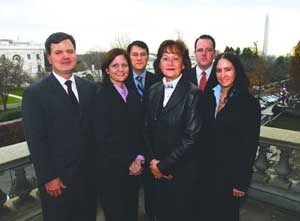 Jeff Koch
Jeff Koch
Office of Management and Budget
Jeff Koch, manager of the Office of Management and Budget’s Internal Efficiency and Effectiveness portfolio, didn’t try to force agencies to accept the Bush administration’s e-government plans for back-office services. Faced with resistance from agency managers and lawmakers, Koch used persuasive tactics.
He cleared roadblocks to ensure that initiatives such as E-Payroll and E-Travel could mature.
“Jeff has provided unwavering leadership for the agencies with his management of the Internal Efficiency and Effectiveness E-Government portfolio,” said Karen Evans, OMB’s administrator for e-government and information technology.
“Jeff has ensured the milestones for each of the initiatives are met, and any obstacles in the way have been cleared.”
Agencies saved $508 million in 2007 from initiatives in Koch’s portfolio.
I will update this post with the obituary once it is available.
Moderators Matter — First, why conferences matter
The following post is an excerpt from the introduction of the book I’m writing — Moderator’s Matter: How to have conference sessions that don’t suck. The book is still in the works, but I thought I would share some of the sections as they are in progress. Before detailing why moderators matter, it is important to go over why conferences matter.
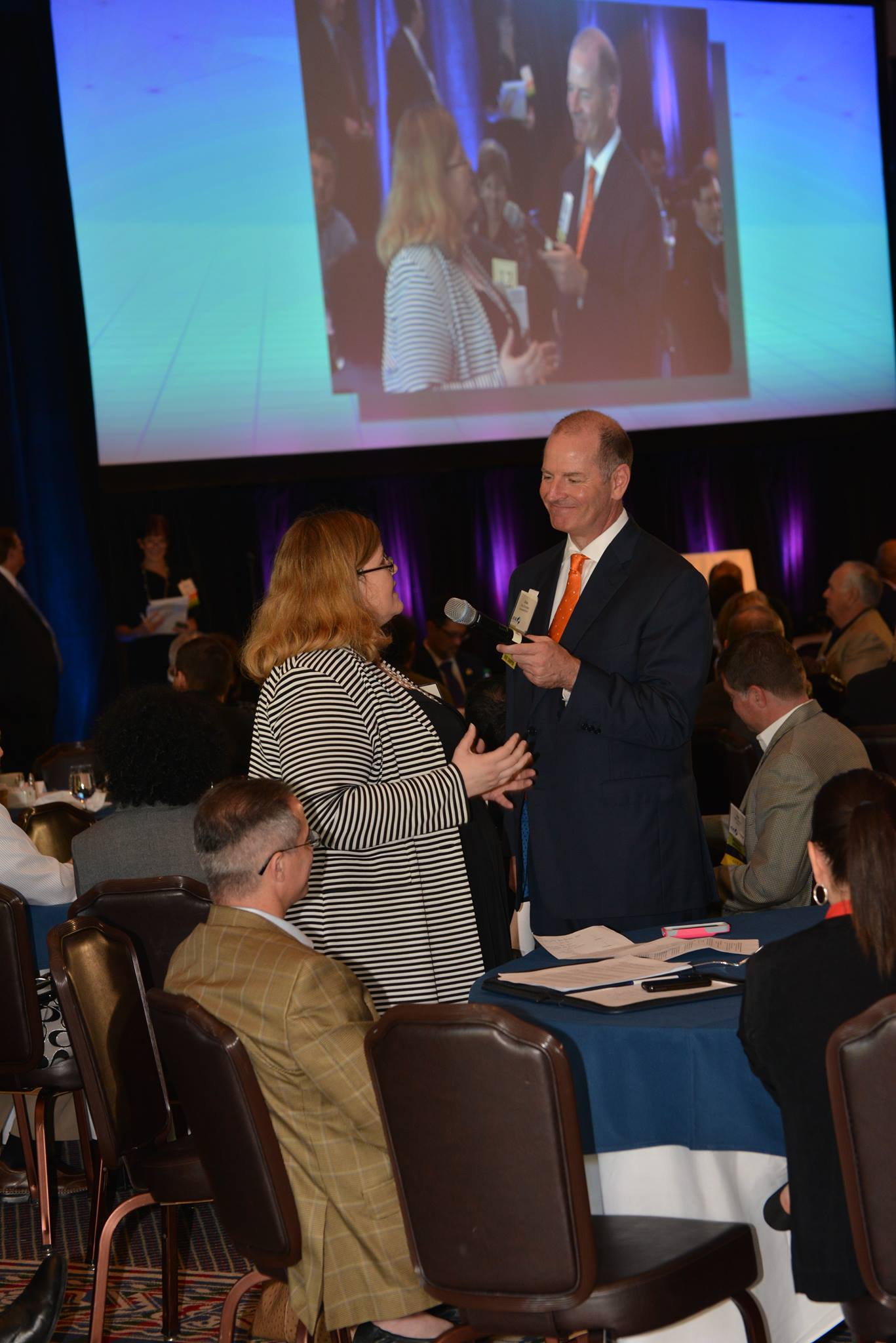 Summits — meetings — conferences — assemblies — conventions — briefings — training — events — even a congress — we have many terms for these moments in time when people come together.
Summits — meetings — conferences — assemblies — conventions — briefings — training — events — even a congress — we have many terms for these moments in time when people come together.
Conferences should be truly magical places. In these days of increased competition and near constant demand for innovation, conference harkens back to the age of Socratic debates. These gatherings are supposed to be a special place where different viewpoints from a variety of people come together in a true form of democratic ideas where each person is made better through conversations with others.
Too often, the reality is, unfortunately, starkly different. In many cases, conferences are more about a party — and the sessions too often are filler. Inevitably, in post-event comment forms, attendees will say how valuable the networking is — yet they often discount the actual conference content, if they acknowledge it at all.

Photo: Warner Brothers
Even worse are the sessions where the room feels as if the energy is being soaked up by a Black Hole. It almost feels as if one of Harry Potter’s infamous Dementors — those dark, malevolent prison guards — may well be is actually sucking all life and joy out of the barely lit room.
Anybody who has attended a conference has had this all too familiar feeling: You are in this cavernous hall, many often underground. There are no windows — and seemly no doors, although paradoxically there is the sound of an occasional door slamming closed when a person (or people) leave the room. Typically there is a stage — generally raised above the rest of the crowd — that sits awash in light, while the audience sits in the dark. That would seem to be a metaphor. Too often that metaphor seems lost. There is a panel of people — too often lacking much diversity — and then, there is a moderator.
Too often the moderator tells the audience that it will be an “interactive discussion” on this important topic — and yet, more often than not, there is a talking head followed by another talking head — and maybe a few more talking heads — inevitably leaving time for a question or two at the very end. We have also had to live through the sessions where a speaker literally reads the text on a series of PowerPoint slides.
“A badly run conference is not only a lost opportunity, but is a waste of money and time,” Duncan Green wrote in The Guardian in June 2016. “How did something as truly awful as panel discussions become the default format? They end up being a parade of people reading out papers, or they include terrible PowerPoints crammed with too many words and illegible graphics.”
Too often panel moderators are an afterthought. Too often it is a post given to a sponsor to give them some visibility with little or no training in either moderating or public speaking or, in some dismal instances, even in the subject matter. Too often we treat the moderators as a role that doesn’t matter.
But… moderators do matter.
I have been working on a book titled Moderators Matter that is dedicated to how to be the best moderator you can be. But even before we discuss why moderators matter, it is important to discuss why conferences matter.
WHY CONFERENCES MATTER
 It is all too easy to think of conferences as dinosaurs whose age has passed — to think of them as old school — a model where there is largely one-way communication in an era that is increasingly collaborative. But I believe conferences matter — and that moderators are an essential part of making them matter.
It is all too easy to think of conferences as dinosaurs whose age has passed — to think of them as old school — a model where there is largely one-way communication in an era that is increasingly collaborative. But I believe conferences matter — and that moderators are an essential part of making them matter.
No matter what business or industry you are in today, your world is changing — and it is changing faster than ever before. There are plenty of organizations that didn’t foresee the coming changes and quickly found themselves a historical footnote. When was the last time you went to a Blockbuster? (How much did we spend on those late fees, for goodness sake?) Or do you even remember MySpace or Friendster — two early social media pioneers that were quickly overtaken by Facebook. And the list goes on — Blackberry… Eastman Kodak… Sears… Sony… and there are others. The Harvard Business Review notes that it took decades for the telephone to reach 50 percent of households, beginning before 1900. By contrast, with the cellphone, it took five years or less to accomplish the same penetration in 1990.
The purpose of a conference is to bring together people with different ideas, different thoughts, different viewpoints, and out of those differences, our own ideas get fertilized and, when a session really works well, they become even better. Just about anything you read about innovation, they talk about the importance of serendipity: That moment that you talk to somebody unexpected, somebody who you may have never known about… or somebody who is tackling a similar challenge but in a different way… it is that moment that turns into something valuable. Steve Jobs literally built serendipity into design. At the Pixar and Apple offices, rather than putting bathrooms and mailboxes and cafes off to the side, Jobs put them in the center of the space.
“Although some were more than a little annoyed to have to traipse to the lobby every time they needed the loo — something remarkable started to happen,” writes The Independent’s Archie Bland. “Pixar’s employees started to bump into each other. They shot the breeze. Sometimes, the chatter would yield something useful, and one of the participants would head back to her desk with a new idea.”
This should — and can — and has been the role of the conference.
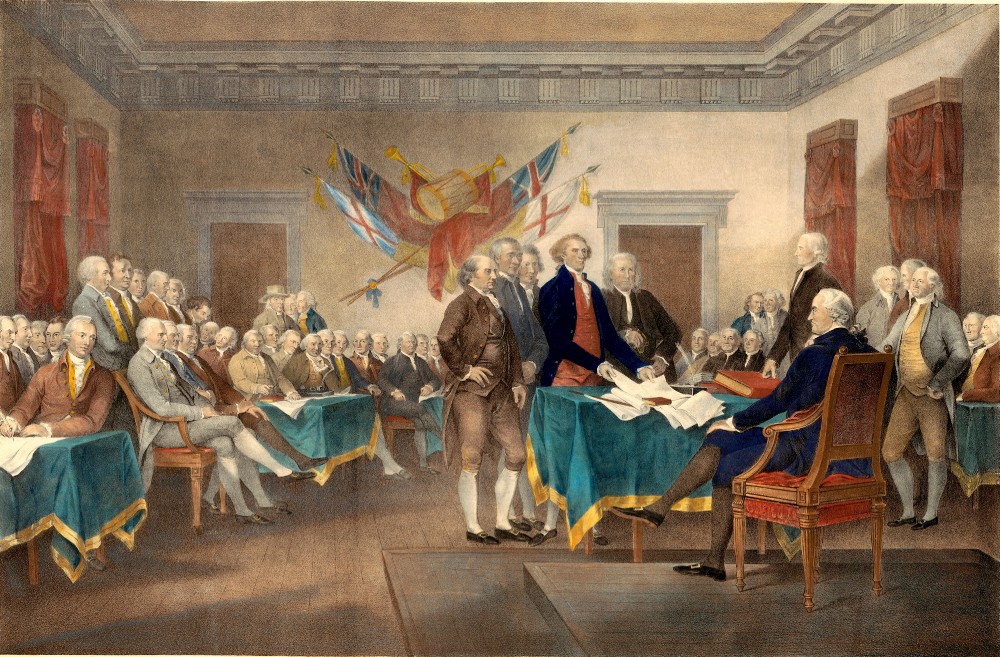 And it is easy to underestimate the power of ideas — and the power that comes from these kinds of gatherings. Tony Rogers, who has literally written the book on conferences and conventions, notes that some of the most significant moments in world history were decided not on the battlefield, but in conference halls. And Rogers quotes a 2010 article in Conference and Meetings World magazine that sites a number of history changing conferences:
And it is easy to underestimate the power of ideas — and the power that comes from these kinds of gatherings. Tony Rogers, who has literally written the book on conferences and conventions, notes that some of the most significant moments in world history were decided not on the battlefield, but in conference halls. And Rogers quotes a 2010 article in Conference and Meetings World magazine that sites a number of history changing conferences:
- The first Continental Congress, held in September and October 1774 in Philadelphia, which was held to protest the “Intolerable Acts,” passed by the British government in response to the Boston Tea Party of 1774;
- The Quebec Conference, held in Quebec City, Canada in October 1864, which lead to the creation of the Dominion of Canada;
- The Paris meeting, held at the Palace of Versailles, France from January 1919 to January 2020, which led to the Treaty of Versailles and defined the structure of post-war Europe;
- The Yalta Conference held in Livadia, Ukraine in February 1945, which was the second of two major wartime meetings between the leaders of Great Britain, Winston Churchill, the United States, Pres. Franklin D. Roosevelt, and Russia, Joseph Stalin. The Yalda Conference followed the Tehran Conference of 1943.
Your events may not feel as weighty as the ones I mention here, but I humbling argue that conferences — the important meeting of the minds — are essential in this time of change.
WHAT CAN YOU DO
Unfortunately, there are too many conferences with sessions that do not live up to these collaborative bastions of innovation. But you, the conference attendee, can make a difference. A few suggestions:
- Be choosy: Time matters — and where you spend your time says almost as much about you as anything else. So make sure you spend your time with conference organizers who value your time. Look at the agenda to see if it is addressing the issues that matter, and if it isn’t, suggest to the conference organizations some that might. (I can generally tell how much conference organizers value content by how they select their moderators. Too often, they are selected because they are sponsors and not because of their skill.)
- Speak up: Fill out evaluation forms whenever you can. If the conference content was weak, say so — and let them know that it matters.
- Offer suggestions. What would make the event more impactful, interesting or educational? Even if it is a crazy idea, offer it up. You might spur some other idea that you didn’t anticipate.
The short version: Don’t miss opportunities; don’t waste time. In short — care.
Next time: Why moderators matter.
DorobekINSIDER: Looking at mobility as a service
-
Transportation isn’t easy — This was my digest take away — transportation is just SO complex. One of the biggest challenges is… well, us… us and our cars. We love them. And we seem to be addicted to them… and sitting alone in them, seemingly regardless of how long it takes. It is the primary ways most people in the US get from point A to point B. But there are all other kinds of modes of transportation — bicycles, ride sharing/taxi hailing apps, scooters, pedestrians, transit like bus and rail. There are multitudes of options, but in the end, government organizations only control a portion of those methods. Therefore there is a real need for different organizations to work together.
-
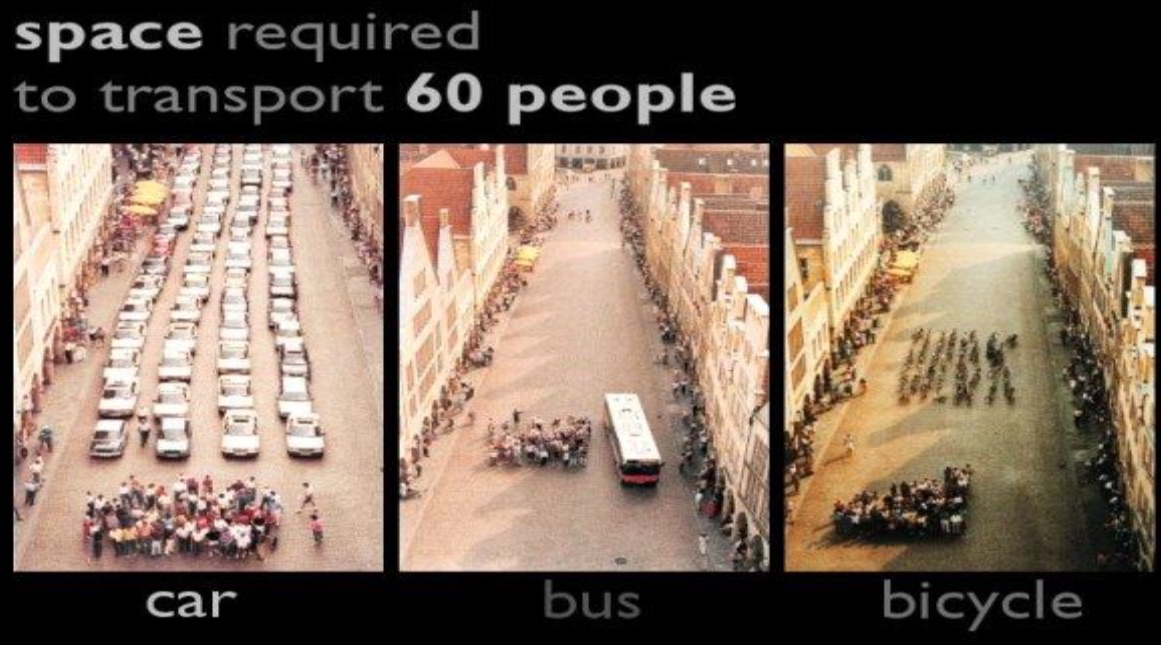
One of the images used by transportation experts (h/t Robin Chase)
The challenges are real — One of the main discussion topics in any urban area is the commute. Roads are congested. This is particularly true in cities. While there is general agreement that new roads simply don’t solve transportation problems, for cities, in many cases, building new roads isn’t an option. Cities are also constrained because there simply isn’t space to construct new roads. Beyond that, the car has been detrimental to our health (Forget sitting at your desk — what about sitting in your car?) Not to mention the health of the planet… and all that wasted productivity. (Robin Chase, one of the founders of ZipCar, said, “The car dominated city as reached its zenith.”)
-
The government is part of the mix, but there are a lot of players — a lot of transit is governed by a government organization, but there are so many players — drivers, bikers, engineers, politicians. (There was much discussion of European models where there is a goal — spoken or unspoken — of eliminating the need for cars. Call me skeptical but it is hard for me to imagine that in the US… Worth watching — Atlanta has created a regional transportation authority — ATL — that is meant to pull the desperate government pieces together. There will definitely be lessons from the ATL experience.)
-
The opportunities feel real — There does feel like an alignment of planets where changes can happen. And you are seeing it happen already around the world — even here in the US where there are people who are shifting to cities because they don’t want to own a car — and these days, they have options… many options. And we have seen change coming faster than we ever imagined. Who would have guessed the spread of “ride sharing” or taxi hailing apps like Uber and Lyft would become so ubiquitous so quickly — and so utterly disrupt the taxi industry? Jack Opiola, Transportation Consultant noted the idea seemed unthinkable not long ago, but times have changed.
- Driverless cars could be heaven – or hell — Everybody is watching what comes of driverless cards. Among these transportation experts, there was a general assumption that is will be here — and sooner than we think.

h/t Dr. Kari Watkins
But there is the very real possibility that, if truly driverless cars become a reality, then the roads could be packed with even more vehicles — and people who don’t care how long their commute takes because they are able to work in their self-driven car.
-
First mile – last mile — One of the real challenges is what transportation experts call the “first mile – last mile” — that is how does one get from “point A” to their transportation — and from where the transportation method drops a person off to get to “point B.”
-

One Asian city has been able to transform a roadway to a open area where people can visit. (h/t Robin Chase)
There could be unforeseen opportunities — One of the more intriguing presentations by transportation consultant Jack Opiola looked at the the electronic tolling devices used in Portugal — think of the EZpass used along most of the East Coast toll roads. The Portugal system has grown over the years to where users can use the electronic tolling device to… buy gas… pay for parking… even make purchases at McDonalds. San Francisco has a Clipper Card, which can be used across multiple modes of transportation, as detailed by Jason Weinstein, Assistant Director, Electronic Payments, Metropolitan Transportation Commission, San Francisco. But there are also real opportunities for communities to turn areas that have been dominated by cars and return them to places that are inviting for people. Some of that is already happening, even in the United States, where there is less need for parking because younger people use alternative methods to get around — Lyft, bikes… even scooters.
-
The changing world of mobility and transportation — Robin Chase, Transport entrepreneur and Founder, Zipcar.
-
Transport challenges today and tomorrow — Dr. Kari Watkins, Associate Professor, Georgia Tech
-
The role of ride sharing in on-demand transport — Corey Ershow, Transportation Policy Manager, Lyft
DorobekINSIDER: ConnellyWorks the basis of a new government PR team
Editor’s note: Updated at 12:50p to add full press release…
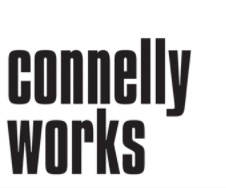
ConnellyWorks, the public relations, marketing communications and events services, is merging with Yes&, a newly formed marketing agency, the DorobekINSIDER has learned.
The formal announcement will come later today.
Yes& is building a new firm that will focus on both public and private sector markets. Yes& was created by the merger of three established communications companies – PCI Communications, LeapFrog Solutions and Carousel30. ConnellyWorks becomes the latest addition to that group.
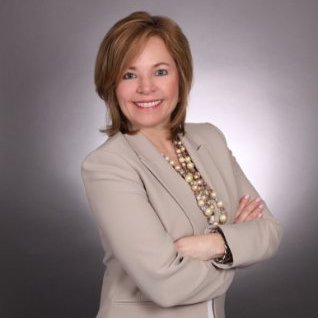 As part of the agreement, ConnellyWorks will continue to maintain its office in Arlington, VA. Furthermore, Joanne Connelly, who founded ConnellyWorks, will continue to serve as president of ConnellyWorks and will be part of the Yes& executive team
As part of the agreement, ConnellyWorks will continue to maintain its office in Arlington, VA. Furthermore, Joanne Connelly, who founded ConnellyWorks, will continue to serve as president of ConnellyWorks and will be part of the Yes& executive team
I will add the formal announcement to this post when it is released.
ConnellyWorks, founded some 15 years ago by Joanne Connelly, a former editor of Federal Computer Week, has been one of the cornerstones of the government IT market with business lines including public relations, events, and events management.
UPDATE: The full press release after the break:
DorobekINSIDER: Godspeed Justice Department deputy CIO Kevin Deeley
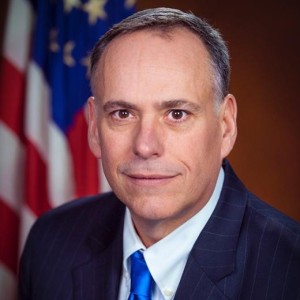 UPDATED with funeral information and other coverage.
UPDATED with funeral information and other coverage.
Justice Department deputy chief information officer passed away over the weekend, reportedly from a heart attack, the DorobekINSIDER has learned.
Deeley, 55, was named deputy CIO in 2012 and his work was recognized with a Fed 100 award in 2014.
In an email to the Justice Management Division staff, Assistant Attorney General Lee Lofthus said:
It is with deep sadness that I am letting you know the heartbreaking news that Kevin Deeley passed away over the weekend. Kevin’s passing is a huge loss for JMD, the Department, and the entire federal IT community.
Kevin joined the Department in 1984, first serving at the Federal Bureau of Investigation Criminal Justice Information Services Division. Kevin was a longtime colleague in JMD, and most recently was appointed as Deputy Chief Information Officer in 2012 and managed OCIO’s internal operations, including policy, process, and the successful delivery of applications, networks, security, and data center services.
Kevin’s good humor and positive outlook, and willingness to tackle any task no matter how daunting or complicated, were his hallmarks. He will be dearly missed. We will provide additional information on service arrangements as they are made available. Please keep Kevin’s family and friends in your thoughts and prayers during this time.
As we get details, we will update this post.
Of course, our thoughts are with Deeley’s family and friends. Godspeed.
UPDATE: Deeley’s obituary via The Baltimore Sun:
On February 10, 2018; KEVIN THOMAS DEELEY; beloved spouse of Albert Eminizer; cherished son of Patricia Ann and the late Walter Gerald Deeley; dear brother of Patricia Pittman, Edward Deeley, James Deeley, Brian Deeley, Kathleen Fitzpatrick, Maureen Turney, and Sean Deeley. Kevin is also survived by numerous nieces, nephews, and other family members. Family will receive friends on Wednesday, February 14 from 3-5 & 7-9PM at STERLING-ASHTON-SCHWAB-WITZKE FUNERAL HOME OF CATONSVILLE, INC., 1630 Edmondson Avenue, Catonsville, MD 21228; where a funeral service will be celebrated 1PM, Thursday, February 15. Interment in Meadowridge Memorial Park. In lieu of flowers, donations may be made in his memory to BARCS, 301 Stockholm Street, Baltimore, MD 21230 (www.baltimoreanimalshelter.org) or MD SPCA, Development Office, 3300 Falls Road, Baltimore, MD 21211 (www.mdspca.org).
Other reports:
- FCW: DOJ’s Kevin Deeley passes away
- “Deeley had a long history with the agency, first joining it in 1984, serving at the FBI’s Criminal Justice Information Services Division. He was named deputy CIO in 2012 and managed the CIO Office’s internal operations, including policy, process and the delivery of applications, networks, security and data center services.”
- FedScoop: Justice Deputy CIO Kevin Deeley passes away
DorobekINSIDER: Roger Baker to leave VA ‘in the near future’
 Roger Baker, the chief information officer at the Department of Veterans Affairs, is leaving that post “in the near future.”
Roger Baker, the chief information officer at the Department of Veterans Affairs, is leaving that post “in the near future.”
Baker doesn’t offer a final date, but some insiders suggest it could be as soon as March 1.
In the time of transition, Baker is the latest to announce that he is leaving his post. NASA CIO Linda Cureton announced she is leaving that post at the end of the month.
At VA, Baker oversees IT for the government’s second largest agency — a $3.3 billion budget and more than 7,000 IT workers.
The VA under Baker, who was confirmed by the Senate in May, 2009, has made remarkable progress and he has won just about every award — including Federal Computer Week’s 2013 Federal 100 award.
The VA CIO is in a unique position given that post has power over government spending. In 2010, when Baker was recognized with the GCN civilian executive of the year, he stressed the importance of having the power of the purse and his ability to use that authority to bring about change. VA’s success should be a lesson to the rest of government, he said. Because VA has a consolidated IT appropriation, it allows Baker and his staff to force changes. “Money is power in the government,” he said. “Money is love.”
“The consolidated IT appropriation is absolutely essential to driving real change in the IT results of an agency,” he noted at the time, and he future said that all federal CIOs should have authority over their IT budgets, he added. “The results at VA, the second largest federal agency, speak for themselves,” Baker said. “Empower CIOs to make real change happen.”
Read Baker’s note to staff following the break:
DorobekINSIDER poll: What is the government word of the year?
The team at the Oxford American Dictionaries have selected GIF as the 2012 word of the year.
In case you don’t know:
GIF verb to create a GIF file of (an image or video sequence, especially relating to an event): he GIFed the highlights of the debate
The GIF, a compressed file format for images that can be used to create simple, looping animations, turned 25 this year, but like so many other relics of the 80s, it has never been trendier. GIF celebrated a lexical milestone in 2012, gaining traction as a verb, not just a noun. The GIF has evolved from a medium for pop-cultural memes into a tool with serious applications including research and journalism, and its lexical identity is transforming to keep pace.
Read the full blog post on the subject, including the other words that were in competition.
I’m not sure that would be my word of the years, but…
What should be the government word of the year?
DorobekINSIDER: GSA FAS Commissioner Kempf takes medical leave; Mary Davie named acting
Steve Kempf, the commissioner of the General Services Administration’s Federal Acquisition Service,
is taking 60-day medical leave. In the interim, the post will be filled by Mary Davie, GSA Federal Acquisition Service’s assistant commissioner of the Office of Integrated Technology Services.
Details are still developing. It is unclear if Kempf’s leave has anything to do with GSA’s ongoing issues. In a note to staff, Kempf confirmed that there have been questions about GSA Federal Acquisition Service’s 2010 Organizational Performance Awards event.
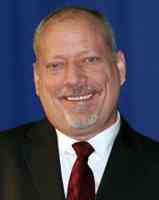
GSA FAS Commissioner Steve Kempf
“I truly do not want to be leaving you at this important time. However, this is necessary if I am going to continue serving our country to the best of our ability,” Kempf said in the note to GSA staff.
Kempf was appointed the FAS commissioner effective July 10, 2010. In the role, he sets strategic direction and oversees the delivery of more than $50 billion of best-value products, services and solutions to federal customers. He served as acting commissioner from April through June 2010, and was the deputy commissioner before that.
GSA has been reeling from revelations about the Public Building Service 2010 Western Region Conference and allegations of extravagant spending. The GSA inspector general report on that incident forced the resignation of former Administrator Martha Johnson and several top agency officials.
After the jump, read the full text of the note that Kempf sent to FAS staff…
07.24.2012: GovLoop Insights’ DorobekINSIDER: Feds sounding off on government innovation; and making a biz case for open data
On GovLoop Insights’ DorobekINSIDER for Tuesday 24 July 2012:
- Government innovation — yes, I know people don’t believe those two words can go together. Insights about what YOU think about government innovation from a just released report. We’ll talk to Tom Fox from the Partnership for Public Service.
- Is there a business case for open data… for open government. And how can you make open data work. The Commerce Department is hoping to answer those questions with a new competition. We talk to Brand Niemann — a former fed who has submitted for the Commerce Department’s contest — about open data.
Also… the 7-stories that impact government — another voice sounds off about the STOCK Act and another controversial GSA conference…
And in the DorobekINSIDER watercooler fodder… AC/DC and Iranian nuclear plants.
